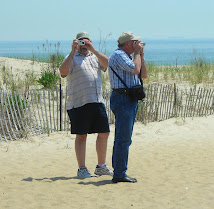
I was reading something today that said to share with your children George Washington's or Abraham Lincoln's Thanksgiving Day proclamations, or some of the writings of the Pilgrim fathers. Thanksgiving, has become such a secular holiday in America (just like Easter and Christmas), let us go back to the beginning and see what these men had in mind when they established this holiday.
What’s All the Thankfulness About?"Our harvest being gotten in, our Governor sent four men on fowling [bird
hunting] so that we might, after a special manner, rejoice together
after we had gathered the fruit of our labors. They four in one day
killed as much fowl as... served the company almost a week... Many of
the Indians [came] amongst us and... their greatest King, Massasoit,
with some ninety men, whom for three days we entertained and feasted;
and they went out and killed five deer, which they brought... And
although it be not always so plentiful as it was at this time with us,
yet by the goodness of God we are.. far from want."
--Edward
Winslow (one of the original pilgrims)
Like most Christian holidays, Thanksgiving has become a secular institution in America, moving from religious meaning to cultural tradition. This is the case for most other Christian holidays as well. Let’s face it, Christmas is more about Santa than Jesus, and Easter is more about the bunny than the resurrection! But most people in our country fail to see Thanksgiving as a Christian holiday at all, and this is primarily because they don’t know the history of the people and the celebration of the day. So let’s take a look at the first people who celebrated Thanksgiving and the ideas that they held about God, the very object of their thankfulness.
Think about it for a minute. Who exactly are we to thank for everything that we have in our lives here in America? If you are a youngster, you might say, “Well, I would thank my parents; they were able to give me everything that I have!” And while that is true, a more thoughtful consideration would reveal others in the chain of provision who also should be thanked. After all, your parents couldn’t provide for you if they didn’t live in a state that provided them with the freedoms required to make a living. So you might find yourself thanking the Governor or the state officials that run and maintain your state. But the state wouldn’t exist without the nation, so you might next want to thank the federal leaders and military who serve and continue to protect our freedom. And of course, the nation would not exist without the sacrifice of those who first worked so hard to form the union. So we could find ourselves thanking the first settlers and founders. But would it stop there? Would it be interesting or important to find out who THESE people were thanking as they formed the nation? Did these folks see themselves as the last object of thanksgiving, or did they bestow their thankfulness on yet another?
Who Did the Pilgrims Thank?
The pilgrims who came over from England in 1620 were, in many ways, simply ordinary men and women. Many of them were members of the English Separatist Church (a Puritan sect of Christianity). These Separatists originally fled England and sailed to Holland to escape the religious intolerance and oppression of their homeland. In their day, the Church and the State of England were one, and independent congregations who desired to explore their own, differing relationship with the Christian God were unable to practice their faith independent of the State Church. Separatists had come to the conclusion that membership in the Church o England violated Biblical teaching. They fled their homeland so that they would be able to purse God in a way that they considered to be truer to the teaching of the Bible. This group in Holland successfully escaped religious persecution from the Church of England, but eventually became disenchanted with the Dutch way of life. They observed the lifestyles of those around them and believed that they were in an ungodly land. So once again, they pushed on toward a new place where they could both worship the Biblical God of Christianity and live in a way that honored that same God.
The Mayflower held more than just the Separatist Puritans. The ship also contained other pilgrims who still remained loyal to the Church of England but came to the new world for economic reasons or because they sympathized with the Puritans in one way or another. But one thing is certain about all those who were on the ship. Whether they were part of the Puritan group or simply along to assist them and make a new life for themselves, everyone on the ship shared a fervent and pervasive Protestant faith that permeated all aspects of their lives. So, when the pilgrims set ground at Plymouth Rock on December 11th, 1620, they were also grounded in their faith as Christians. In less than a year, they suffered the loss of 46 of their original 102 members from the Mayflower. But these Christians never lost their faith.
You can finish reading this article here.









No comments:
Post a Comment